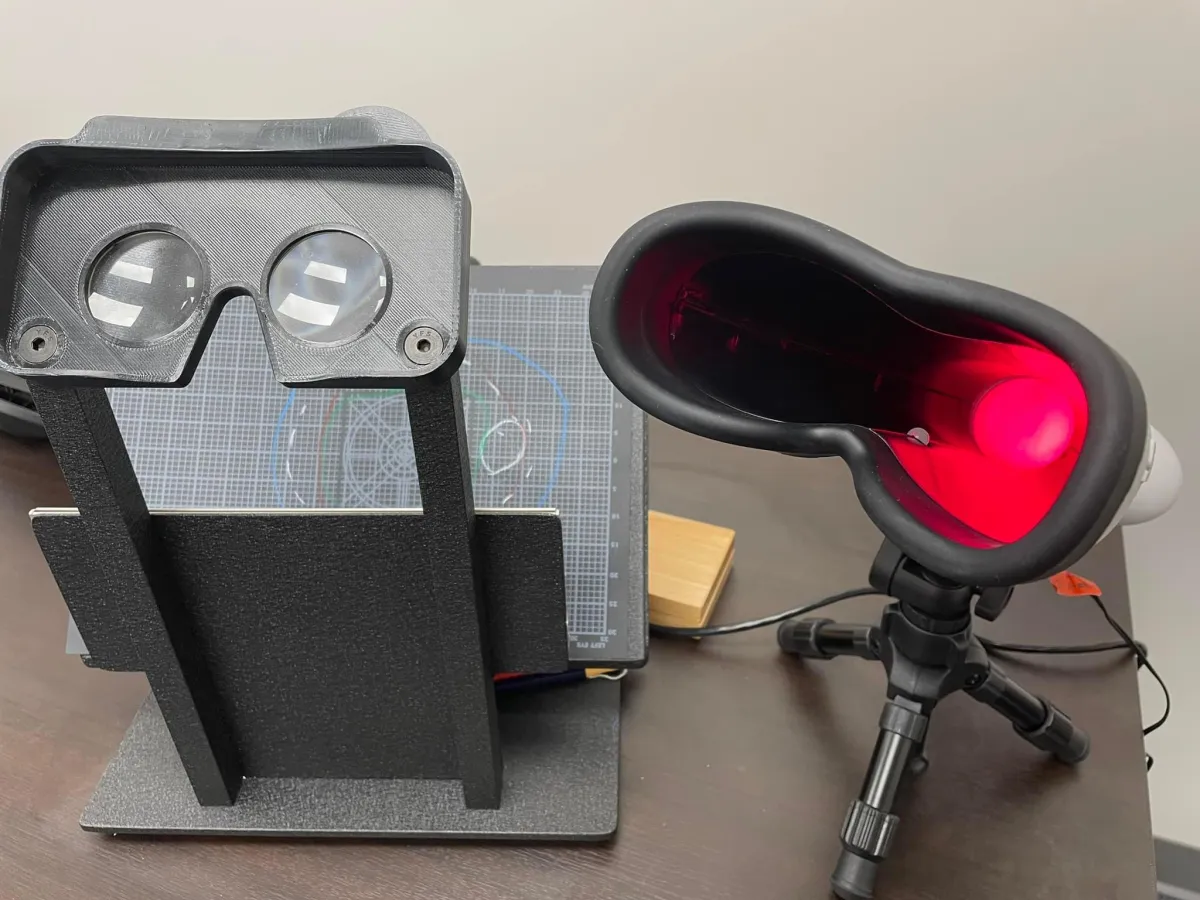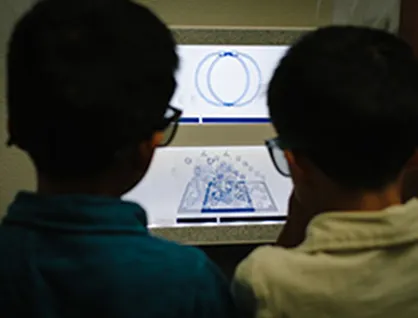19002 Park Row, Ste 203
Houston, TX 77084
Call Us: 832-684-9833
Convergence Insufficiency
When the two eyes don't work well together
What is Convergence Insufficiency (CI)?
Your eyes are designed to work together as a team to produce a single image. To do this, they both must aim and focus on the same point. This skill is known as eye teaming. When you look at an object up close, your eyes must turn in (they must, converge) in order to maintain proper eye teaming.
Convergence Insufficiency (CI) is the inability of the eyes to converge comfortably and sustain that convergence while focusing on an object up close, such as when reading a book or working on a computer.
Video published through the National Eye Institute
What is the impact of convergence insufficiency on both adults and children?
Convergence insufficiency is an important diagnosis. In fact, the National Institute of Health spent more than $14 million dollars studying this condition and finding out how to treat it; it was researched in 9 major hospital / university clinics.
Children
A child with CI will find it difficult and uncomfortable to concentrate on reading and other up-close activities for extended periods of time. This is often mistaken to be an attention disorder in school.
Reading Slowly
Loss of Place when Reading
Difficulty with Concentration
Poor eye-hand coordination (cannot catch a ball)
Trouble remembering what is read
Squints, closes, or covers one eye while reading
Unusual posture / head tilt when reading or writing
Adults
An adult with CI often experiences chronic, unexplained, dizziness when reading or working, and often struggles with feeling comfortable while driving. They complain of intense eye discomfort and is often mistaken as adult onset anxiety.
Eye Strain
Headaches
Blurry Vision
Double Vision
Dizziness while using a computer
Car sickness / motion sickness
Falling asleep while reading
Convergence insufficiency is easily misdiagnosed as an Attention Disorder
How is it treated?
The Convergence Insufficiency Treatment Trial (the $14 million dollar study mentioned above) found that optometric vision therapy is the most effective way of treating the condition. They reported that a specifically prescribed program of weekly in-office therapy, combined with at-home activities has proven to be the best approach to train the brain to utilize both eyes together comfortably and efficiently, with the goal being to eliminate the symptoms and improve the eye teaming abilities to permit you to read and perform near point activities comfortably, for extended periods, without fatigue.
Treatments we use here a Texas Vision Therapy
When a thorough evaluation is performed, convergence insufficiency is often found alongside other diagnoses, such as issues with accommodation (the eye-focusing system) or with the oculomotor (eye-tracking) systems. Therefore, we use multiple tools to treat these problems.
Therapeutic Glasses

These may be prism lenses or plus-powered lenses. Prism lenses move light to a position most comfortable for the eyes, and plus-powered lenses reduce the strain and effort required to focus to see anything up close
Syntonic Phototherapy

This is the selective application of light frequencies through the eyes, and is used in support of other therapies to aid in the remediation of visual problems, visual discomfort, and visual field constrictions associated with visual stress or brain injury
Vision Therapy

A customized therapy program, often recommended in conjunction with therapeutic lenses and syntonic light therapy, that rebalances the visual system and helps correct underlying binocular vision dysfunctions.
Treatment improves your comfort and decreases your symptoms
Unfortunately, convergence insufficiency does not go away on its own with time. People instead learn to avoid anything that makes their eyes feel uncomfortable.
Contact us today! We have the tools to help you overcome this disorder.
Contact Details
Texas Vision Therapy
19002 Park Row Suite 203
Houston, TX 77084
Phone: 832-684-9833
Fax: 346-352-9156
Office Hours
Monday through Thursday:
9:00 AM - 6:00 PM
Friday to Sunday:
Closed

